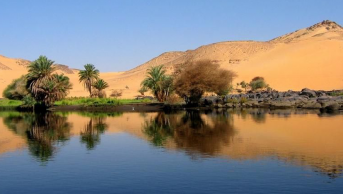European Commission’s Annual Progress Report on Turkey: Moderate Progress in Chapter on Environment and Climate Change

The European Commission has recently published 2015 Progress Report. As it is already known, out of 33 Chapters, 14 have been opened so far within the framework of accession negotiations, and only one of these (Chapter on Science and Research) was only provisionally closed. Chapter of Environment is one of these Chapters where negotiations are still continuing. It was opened in 2009, after benchmark conditions regarding pre-set criteria for opening of the Chapter have been achieved by Turkey. As of late 2015, the Commission views Turkey as a “moderately prepared” candidate country in the area of environment and climate change.
The Commission, in a general fashion, notes, “[T]here was some progress, mainly in aligning environmental legislation, whereas enforcement remains weak, especially on waste management and industrial pollution. There is considerable room to improve the way horizontal legislation is implemented. Poor implementation of court rulings on environmental issues is causing public concern. More ambitious and better coordinated environment and climate policies still need to be established and implemented. Strategic planning, substantial investment and stronger administrative capacity are required as well. In the coming year, Turkey should in particular: further build up its strategic planning on climate action, and start implementing its contribution to the expected 2015 Paris Climate Agreement; ensure correct implementation of the environmental impact assessment legislation; ensure its alignment with EU legislation on public participation and the public’s right to environmental information, as well as on the monitoring and reporting of greenhouse gas emissions.” As to specific sub-headings, the Commission’s findings about problems can be summarized in the next paragraphs.
With respect to horizontal legislation, the Commission continues to be highly critical: “Civil society remains critical of the inadequate level of public consultations and of procedural requirements. Several cases are being challenged in court, including the Akkuyu nuclear power plant and micro-hydro power plants. Procedures for transboundary consultations have not been aligned with the acquis. Turkey has not yet sent to the relevant Member States its draft for general bilateral agreements on environmental impact assessment cooperation in a transboundary context. Alignment with the Strategic Environmental Assessments Directive is still pending. Provisions on access to information, public participation and access to justice in environmental matters established in the UN Economic Commission for Europe Aarhus Convention also have yet to be aligned with”. National air quality legislation, according to the Commission, “still needs to be adopted in line with the current directives on ambient air quality, national emissions ceilings and volatile organic compounds”. Concerning the waste management, the Commission states, “Further work is needed on separate collection of different types of waste and on reducing biodegradables. The requirement to prepare and implement waste management plans, stemming from the EU Waste Framework Directive, has not yet been met.”
In 2012, the Commission has raised the issue of climate change and incorporated it in the title of the chapter on environment. As a corollary to this, Commission started evaluating the climate-related requirements in more detail in its recent reports. This is also representative of the fact what has been known as the “EU is a moving target”. In other words, requirements generally accumulate into greater body of legislation, and get stricter over time, which makes it difficult to complete negotiations and provisionally close the relevant chapters. Therefore, the sooner the candidate countries align themselves with the existing EU acquis, the better it is.
Except few notable changes in legislation and implementation on a yearly basis, the unchanged fundamentals in Commission’s Annual Progress Reports have been a reflection of the persistent problems in Turkey’s environmental policy. As a positive note, on the other hand, is related with the positive rhetoric that the Commission has recently adopted concerning the partly achieved objectives. Instead of expecting one-hundred percent implementation, the Commission has started to send motivating signals via applauding the improvements made in the year covered.
In order to make a paradigm shift, Turkey needs to accelerate its reform process. It has, thus, been apparent that it will take much longer for Turkey to be ready for membership in the context of environmental acquis, if the current pace of negotiations remains intact. For such a paradigm shift, not only a visionary political will, but also redistributive economic steps are in high demand. However, this is an uneasy combination mainly because of the fact that creation of winners and losers through political decisions generally involves risks for political elites many of which remain hesitant in facing them. On the other hand, adhering firmly to the EU-related reforms will contribute to the status of political ruling class in longer term, let alone the overwhelming interests that the country as a whole would harvest out of the process of EU compliance. Within this context, the recent outlook in Turkey where a single-party government will remain in power for four years opens up a window of opportunity for revitalizing the EU-affairs in the country. Whereas the Chapter on Environment requires the most demanding tasks, the awaiting benefits are larger, too. The Turkish economy will become more competitive as the EU environmental standards are implemented. Furthermore, the country will attract greater amounts of foreign direct investment. Last, but not the least, the quality of life will increase for each and every citizen of Turkey.









